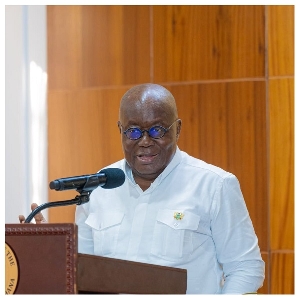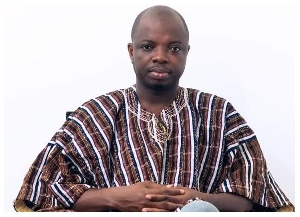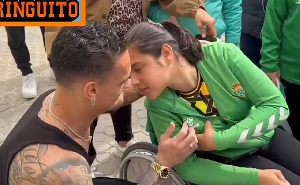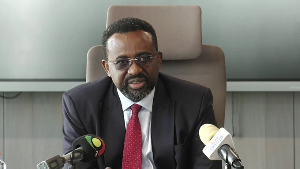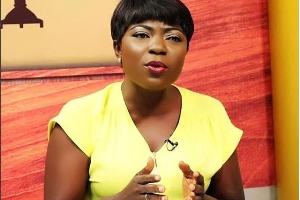There is a high-level game in Ghana called IGNORE. Yes, the government and its institutions choose to ignore laws made by parliament and judgements given by the courts. I am talking about Act 699 – Representation of the People Amendment Act (ROPAA) passed by Ghana’s parliament and assented by the then incumbent President J.A. Kufuor on February 24, 2006.
ROPAA allows Ghanaians Living Abroad (GLAs) to vote in Ghana’s national elections from abroad. Successive NPP and NDC governments and their appointed members of the Electoral Commission (EC) simply ignored the implementation of ROPAA for the subsequent national elections in 2008, 2012, 2016, and 2020.
This cannot continue if Ghana wants to keep impressing the rest of the world that it is a model of democracy in Africa; and use that assertion to coax multilateral entities to fund Ghana’s general elections and approve loans and aid. ROPAA must be implemented and GLAs must finally vote in the coming December 2024 presidential elections. Anything less is a mockery of Ghana’s claims of being the poster child of democracy and human rights in Africa.
In his national address on January 7, 2024, commemorating Ghana’s Constitution Day, President Nana Addo Dankwa Akufo-Addo said “Ghana is considered a beacon of democracy and stability in Africa, and the celebration of Constitution Day should inspire us.” Indeed, we should be inspired to end the denial of voting rights to the more than 3 million Ghanaians Living Abroad.
Exasperated by the refusal of the EC to implement ROPAA, the New York-based Progressive Alliance Movement (PAM) sued the EC and the Attorney General in the High Court of Human Rights in Accra. On December 18, 2017, His Lordship Anthony Yeboah (RIP) found that the EC had been “deliberate” in denying the voting franchise to GLAs contrary to Article 42 of Ghana’s 1992 constitution that states that “Every citizen of Ghana of eighteen years of age or above and of sound mind has the right to vote and is entitled to be registered as a voter for the purposes of public elections and referenda.” Note the absence of distinction of residence in the constitution.
The Judge ruled that “An Order of mandamus is hereby made and directed at all the Commissioners of the 1st Respondent and the Electoral Commission itself to uphold/ensure full compliance/operationalization of the Act 699 within calendar twelve (12) months reckoned from 1st January 2018 by having the constitutional instrument for the modalities for the implementation of Act 699 passed into law by Parliament and ensuring that the Applicants and similarly circumstanced Ghanaians are registered to vote in the 2020 national elections and subsequent such elections and referenda. “Pages 41-42 Item 5, Boateng et All vs the Electoral Commission and the Attorney-General, Suit # HR/003/2017, December 18, 2017.
PAM filed a contempt of court against the EC for their failure to develop the required Constitutional Instrument (CI) by December 31, 2018. PAM’s attorney Samson Lardy Ayenini said the EC had “failed, refused or neglected to respect and comply with the specific orders of the court.” In their response, the EC under its Chair, Jean Mensah, responded by filing for a one-year extension in February 2019. The EC set up a ROPAA Committee headed by its Vice Chair, Dr. Bossman Asare. The Committee affirmed the support of Ghanaians for ROPAA implementation, and visited Senegal, a leader of overseas voting, to learn about implementation.
However, contrary to the legal ruling and the granted extension, the EC did not implement ROPAA for the 2020 elections citing COVID as a convenient reason. Despite COVID, Ghana reelected President Nana Addo Dankwa Akufo-Addo in 2020. In mid-December 2023, Ghana launched “Diaspora Engagement Policy” led by the Ministry of Foreign Affairs and Regional Integration, and Diaspora Affairs, Office of the President.
In the published Policy document, “Diaspora” refers to GLAs, their children and grandchildren. It also includes historic diaspora from the transatlantic slave trade. To avoid confusion, years ago, the author coined Ghanaians Living Abroad to be distinct from our historical brethren who are challenged about knowing their specific roots.
The government’s Diaspora Policy states that there were about 1.5 million GLAs in 2005 of which some 71% lived in West Africa (p. 5). The Policy document states that in 2020 GLAs remitted US$4.29 billion to Ghana (p. xv). The annual GLA remittances to Ghana would be much higher than $5 billion if cash that does not go through formal channels are factored. Certainly, the number of GLAs has at least doubled to some 3 million from the nearly 20-year-old study cited in the Policy. We know that when ROPAA is implemented, not all will vote.
We shall be fortunate to get 15% at this late stage to vote in the 2024 presidential election. ROPAA is mentioned a few times in the Policy as an example of the Government’s engagement with GLAs. There is zero discussion about ROPAA’s implementation in the Policy. The inference is clear. Ghana government sees GLAs as a growing asset and a catalyst for the country’s economic development. This is not debatable.
The government, however, is interested in devising a policy to get more money from GLAs while continuing to deny them their civic human right – the right to vote in Ghana’s general elections- the right to have a say in the choice of the leaders of the country for which GLAs toil outside Ghana’s borders to send high percentages of their earnings back home.
Some GLAs risk their lives crossing the Sahara and the Mediterranean in search of opportunities, dreaming of sending money back home. Prisoners in Ghana vote in elections per a March 24, 2010, Ghana Supreme Court ruling based on the same Article 42 of the 1992 Constitution. Is there a weightier case to be made for the estimated 3 million GLAs who remit more than $5 billion a year to Ghana? As a nation, our political leaders can choose to be short-sighted to maintain power for a few; or be Ghana-minded letting the constitution work for all, pulling in GLAs through their voting franchise, and gaining a lot more money, talent, and investments. Ghana, why suffer when help is only a ROPAA implementation away? Remember that we are talking about generations of positive engagement through ROPAA implementation. Ghana will benefit incrementally.
Implement ROPAA for the 2024 presidential elections. Act 699 gave the mandate to implement ROPAA to the EC. They should not cow to the ruling political parties. Each of the two major political parties sees ROPAA’s implementation as disadvantaging it. For this untested and parochial reason, a law is made, a court has ruled, and the rights of millions of Ghanaians Living Abroad are intentionally denied. Ghana is bigger than the political parties and the EC.
But for GLAs, Ghana would not be an oil producing country (George Owusu – Houston-USA), nor a cocoa-growing one (Tetteh Quarshie- Equatorial Guinea), nor have a Word Trade Center (Yours Truly). Osagyefo Dr. Kwame Nkrumah and Kofi Annan were GLAs. So are many Black Stars players. Need I cite more? Look in your home. How would most people eat, sleep, be educated, have healthcare, etc. without their GLA kins? GLAs relieve Ghana government of burdens, but the government denies them their right.
There are no excuses for the EC-none. The National Identification Authority has made several announcements about charging GLAs for Ghana identifications cards to be issued abroad. The fees could pay for the cost of ROPAA implementation. GLAs have been waiting. Nothing is happening. PAM challenges all the candidates vying to be Ghana’s next president to own ROPAA 2024 implementation as an essential economic anchor strategy and an overdue constitutional dispensation. President Akufo-Addo, as you said on January 7, 2024, include GLAs in your conception of the Ghanaian.
You said, “on the sovereign will of the Ghanaian people, when you exercise your power to choose freely your leaders to manage the affairs of the country.” In 2006, as an MP, you played a part in drafting Act 699 -the ROPAA legislation. Now, Mr. President, make it your legacy to implement ROPAA starting in 2024. Remember your twice-affirmed oath to defend and uphold Ghana’s constitution. Article 42, Sir, is in the constitution.
There is nothing to fear. The right person will be elected the leader of Ghana by Ghanaians, living in Ghana and abroad, just as the constitution you celebrated on January 7, 2024, intends.
Not to be left off the hook, in 2015, when the author asked then President Mahama about ROPAA implementation, the president redirected us to the EC. We heard him and took the EC to court in 2017 and won, but we are empty handed. Martin Luther King Jr. said, “it is always the right time, to do the right thing.”
PAM is planning a global forum on the topic on February 3, 2024. Visit https://pamfire.org.
Send your comments to Dr. Kofi A. Boateng, Chairman, PAM - kofi.aboat@gmail.com
Opinions of Tuesday, 23 January 2024
Columnist: Dr. Kofi A. Boateng (Kofi ROPAA)





